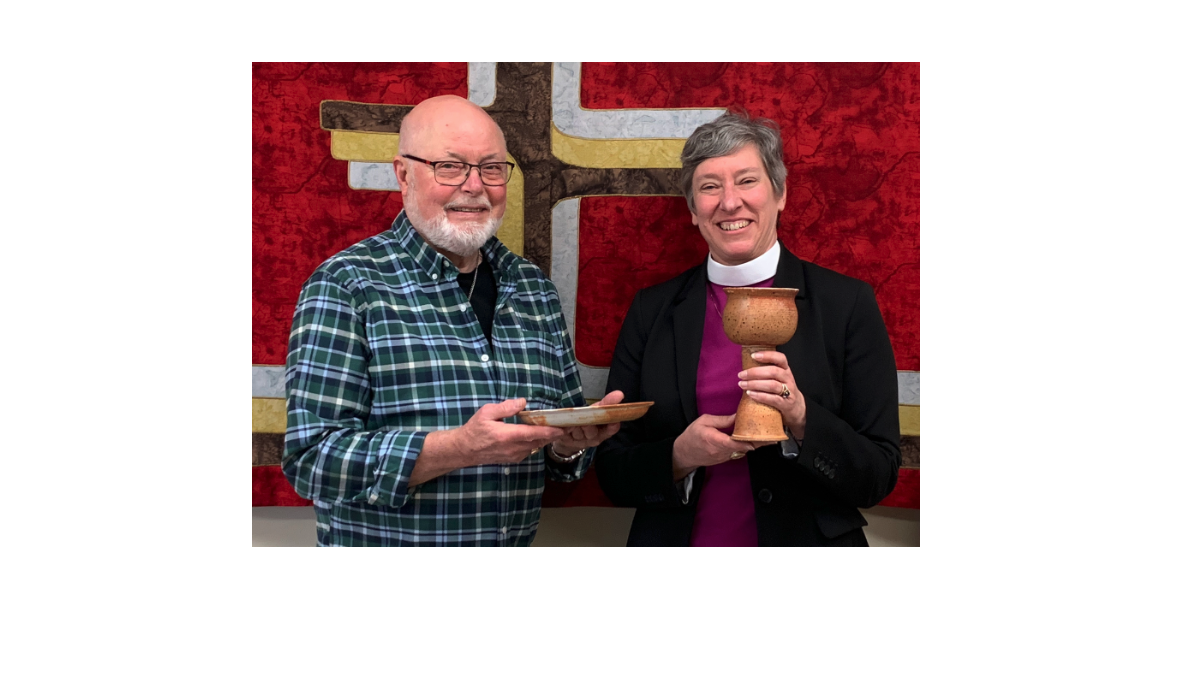
“I just have trouble hearing all the patriarchal language,” said a young mother who was home visiting a church in our diocese on the Sunday that I visited. She had grown up in the Episcopal Church and was now working and raising a family in New York City. Though she still loves the church of her childhood and has found a church home in the city, she admitted to me that she doesn’t attend often because the language feels like a barrier. She clearly cared deeply about her faith tradition and language, and as someone who had studied ancient languages, she knew what she was talking about. Her words are a reminder that language really matters in helping people feel truly at home in the church.
She reminded me of myself, a newly married young adult arriving in New York City, and experiencing the opportunity to “shop” for an Episcopal Church for the first time. I chose The Church of the Holy Apostles in Chelsea, and I remember the first time I visited and heard the congregation use the pronoun “she” for the Holy Spirit. “They get me!” I thought. I was a budding feminist and this brief nod to the feminine (long before it was authorized) was like a light in the fog.
Embracing the full inclusion of women in the life of the church and in ministry has a long and early history in the Diocese of Rochester. The Rev. Merrill Bittner, one of the Philadelphia Eleven, was raised up from the Church of the Good Shepherd in Webster and supported by the people and the former rector, the Rev. George Anderson. Initially supported by Bishop Bob Spears, Merrill was told she could preside at Eucharist in the diocese if she received the support of the Standing Committee, which they gave. However, after the ordination, the House of Bishops held an emergency meeting and agreed not to allow the new women priests to preside. In support of Merrill, and to further the ministry of women in the diocese, a group was formed called “The Church in Exile” which gathered to celebrate Eucharist.
In the fall, I had the privilege of meeting with the Rev. John Burr, a deacon who worked for the ordination of women and who, with his wife Toni, are members of Two Saints. Last month, the Rev. Mark Steigler, whose parents were active in the Church in Exile, presented me with the ceramic chalice and paten used by the group (pictured). What a wonderful gift to mark the 50th Anniversary of the ordination of women! You can watch a film about the Philadelphia Eleven or sponsor a showing and discussion at your parish. Information is available here.
That was the past, which is vital to remember, but let’s turn our attention back to the present and future. Following our baptismal promise to “strive for justice and peace” is like tending a fire – sometimes it requires the work of gathering wood, fanning the flames, or blowing on the embers. Whatever justice is achieved will never end our work. It requires continual focus and attention. Luckily, we don’t do this alone, but as a community.
Many parishes in our diocese regularly use expansive language on Sunday mornings – just one way to let visitors know that all people are welcome in the Episcopal Church. Inclusive language resources are linked below. Some parishes are using “siblings” or “children” to recognize the full inclusion of non-binary and trans folks. I am delighted by the number of parishes that regularly include music from a variety of composers, styles, and cultures – yet another signal to a newcomer – everyone is welcome!
Remember, what we as Episcopalians take as a given – full inclusion of all people – is still radical to many who don’t spend their Sunday mornings in a church. Your welcome and inclusion is one of the ways we provide a light in this world – embrace it!
1) Enriching Our Worship 1 Eucharistic Prayers 1, 2, and 3
2) Book of Common Prayer Rite II Eucharistic Prayers A, B and D. (Altar Book Expansive Language versions) and two expansive language versions of Eucharistic Prayer C.
3) Inclusive Language Psalter from the Anglican Church of Canada
6) Explore other Resources from other Anglican Communion members:
New Zealand Prayer Book
Common Worship (Church of England)
Book of Alternative Services (Anglican Church of Canada)
